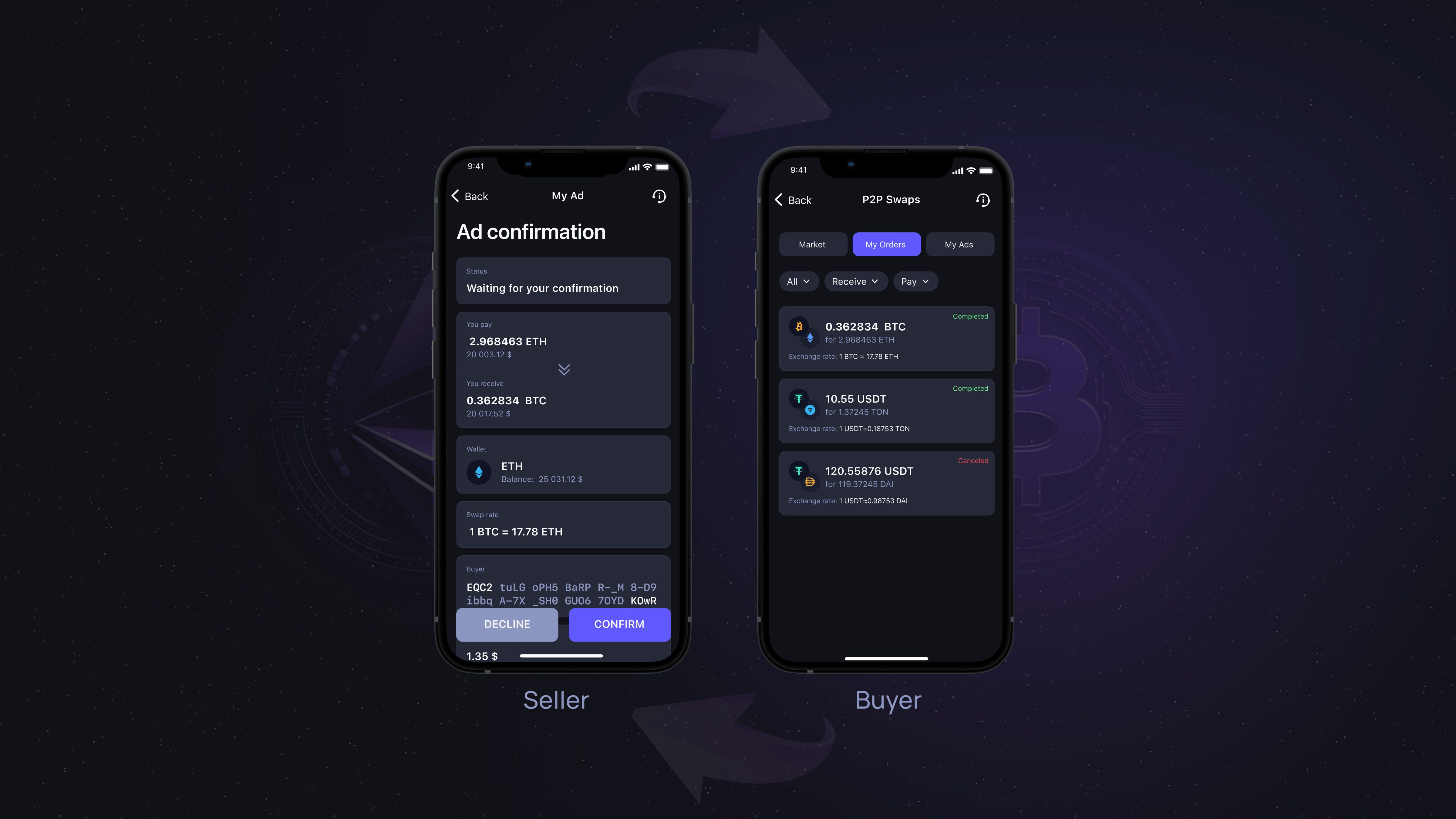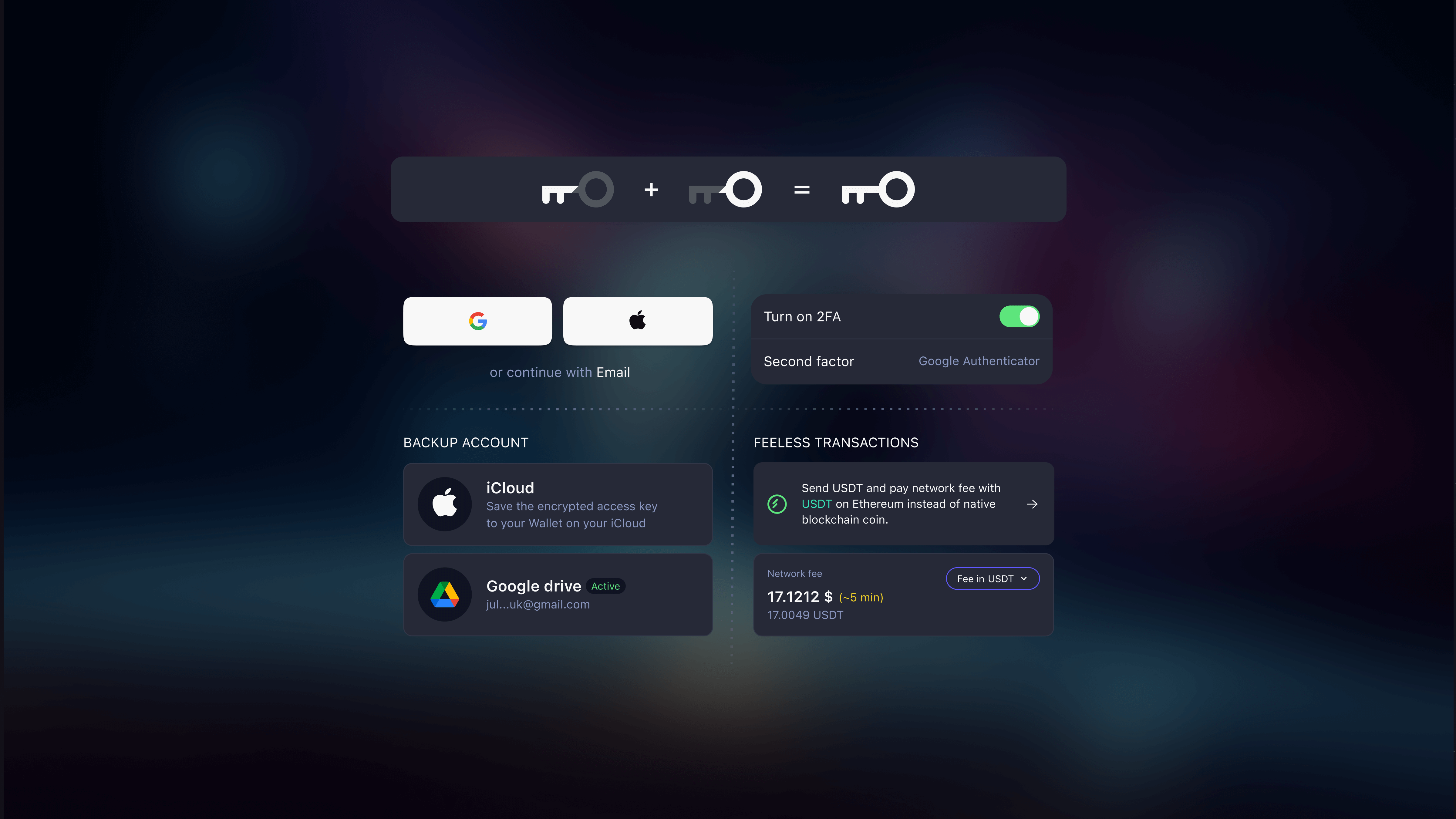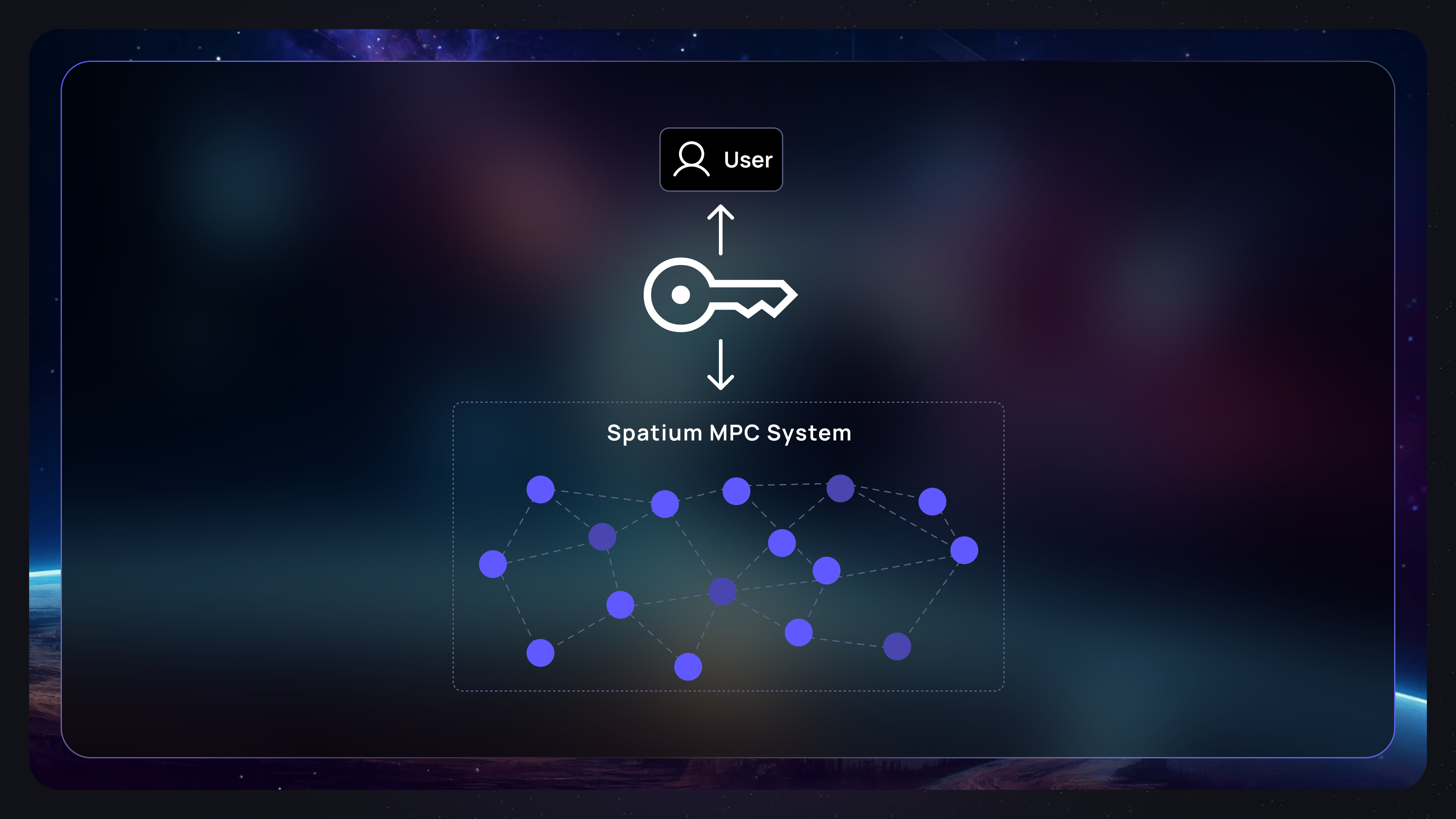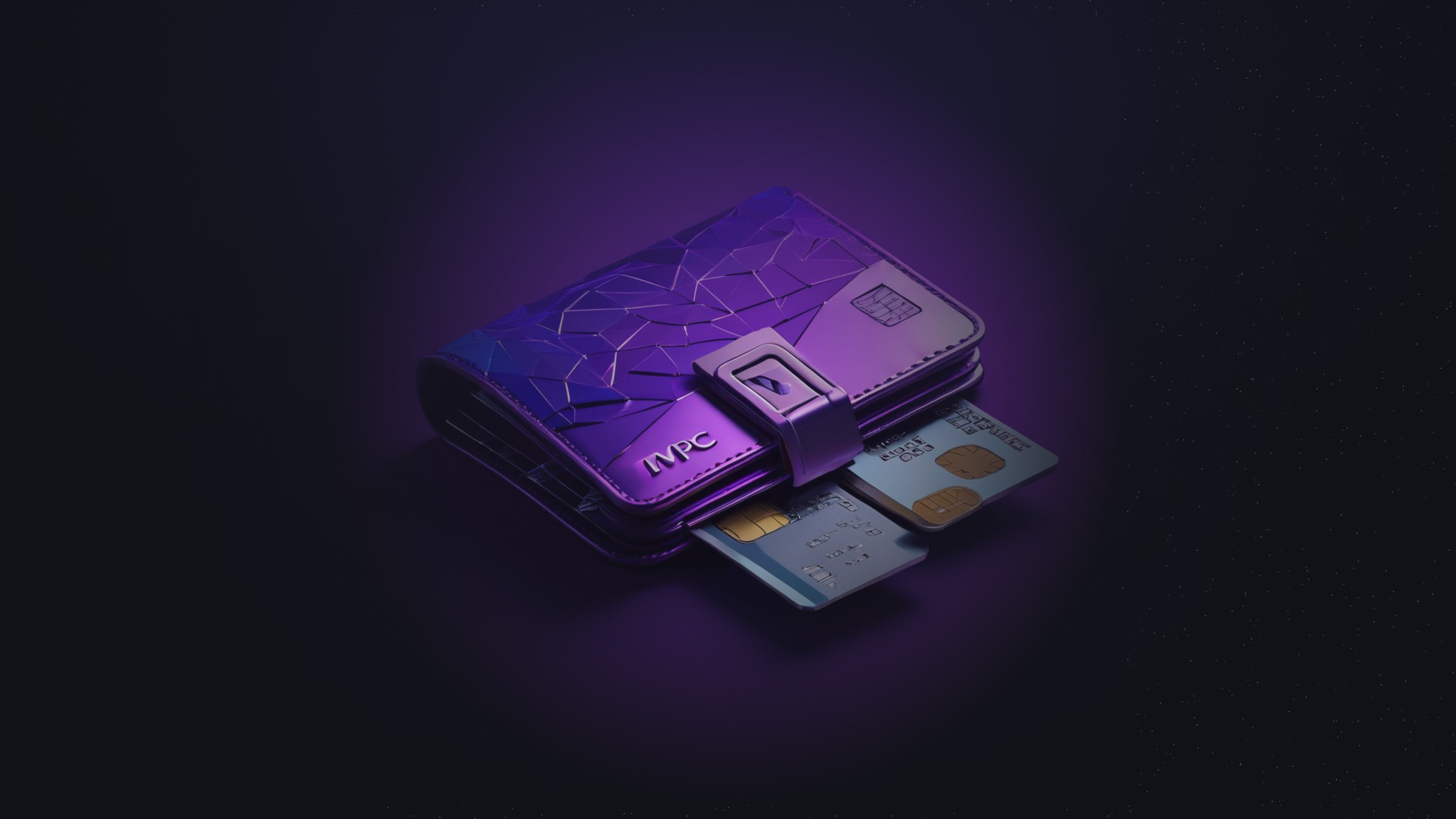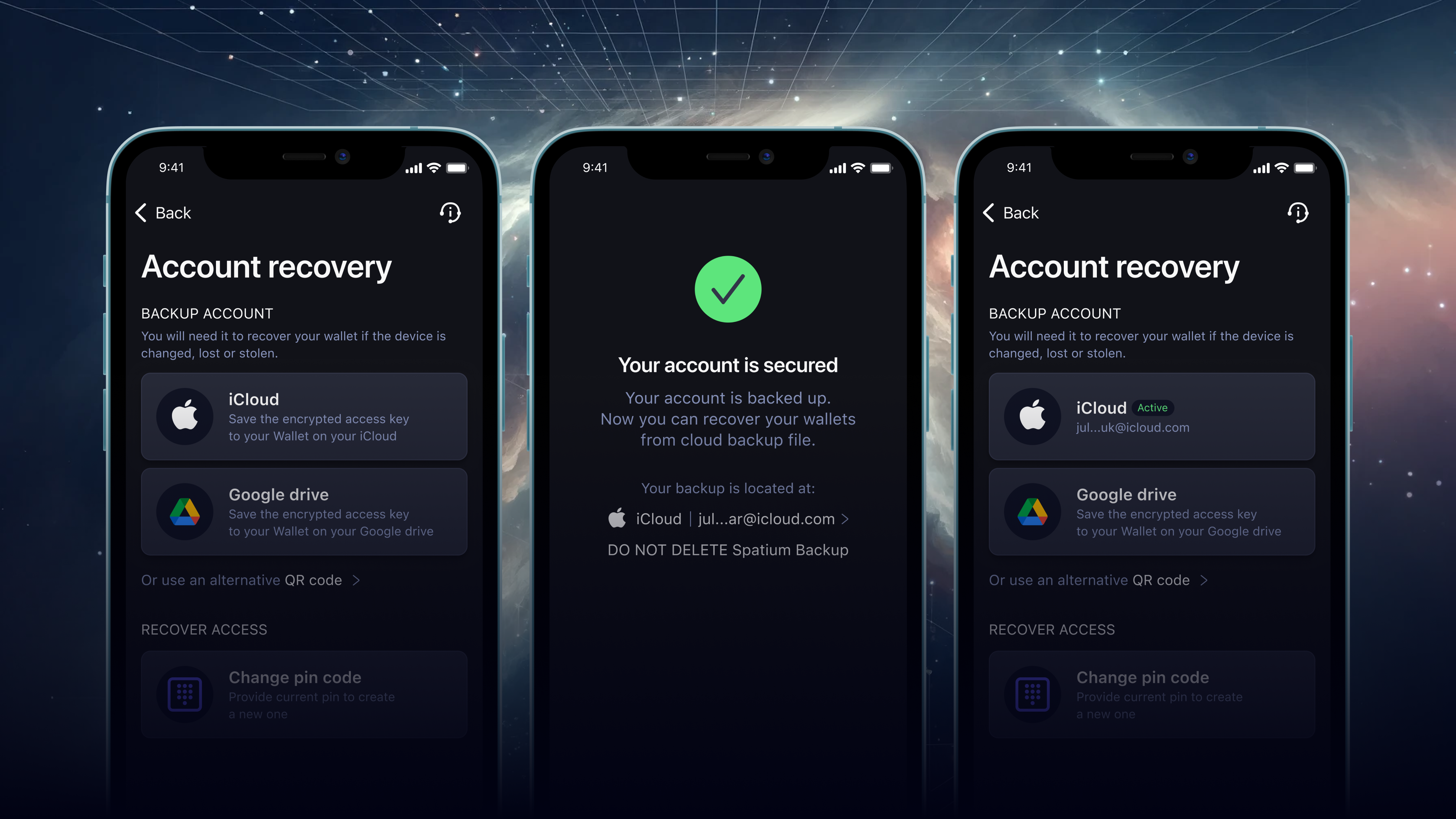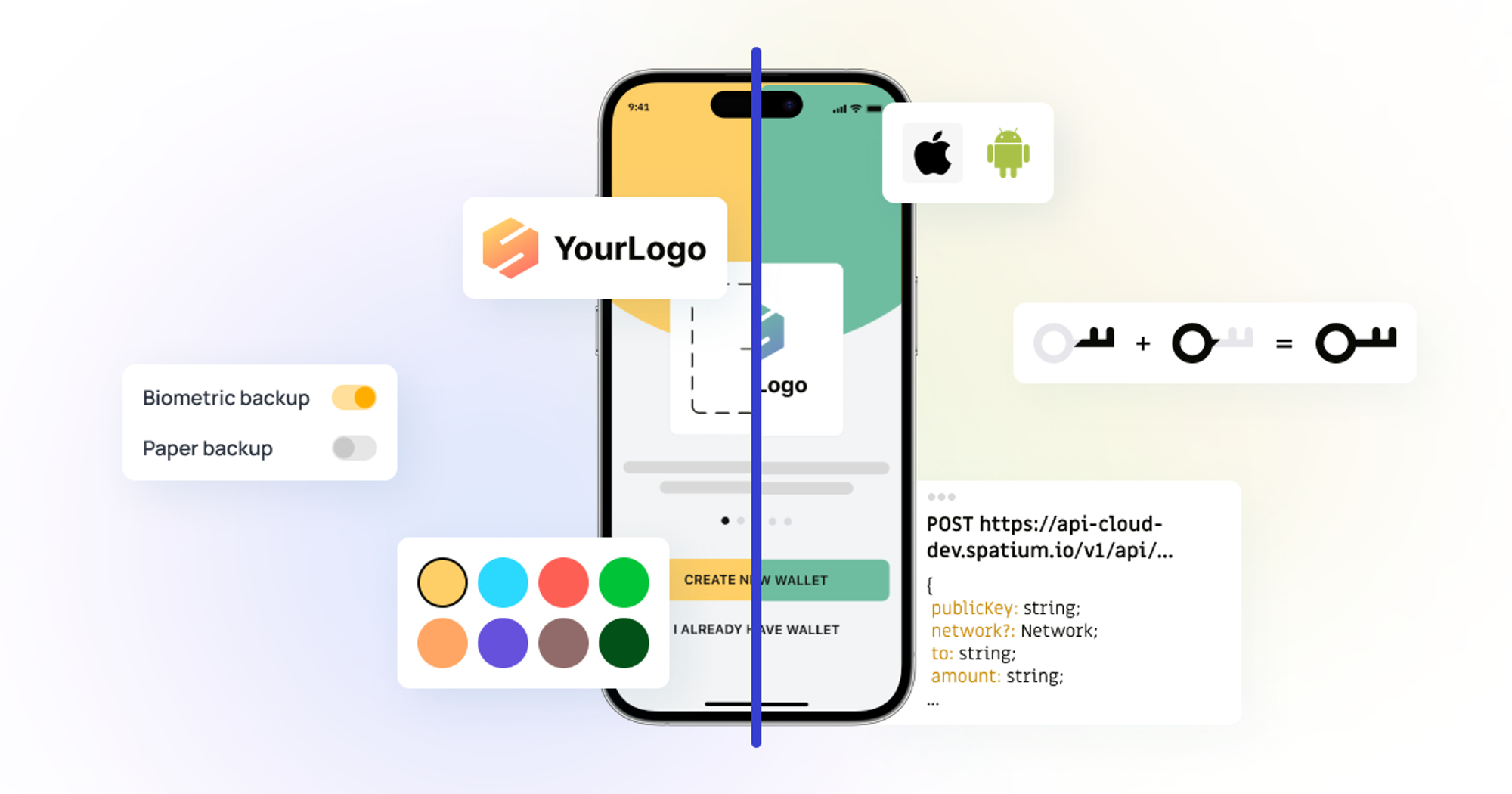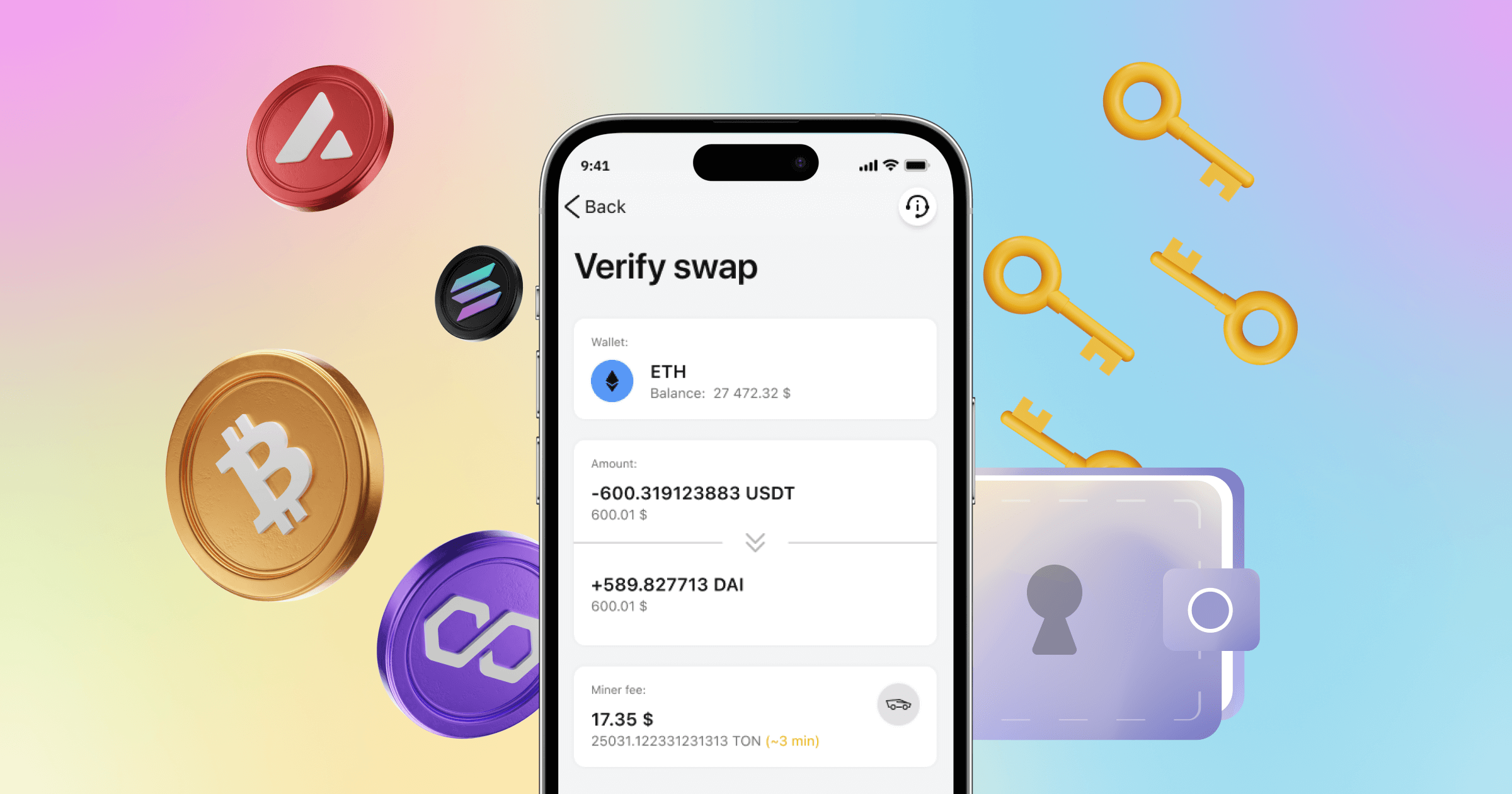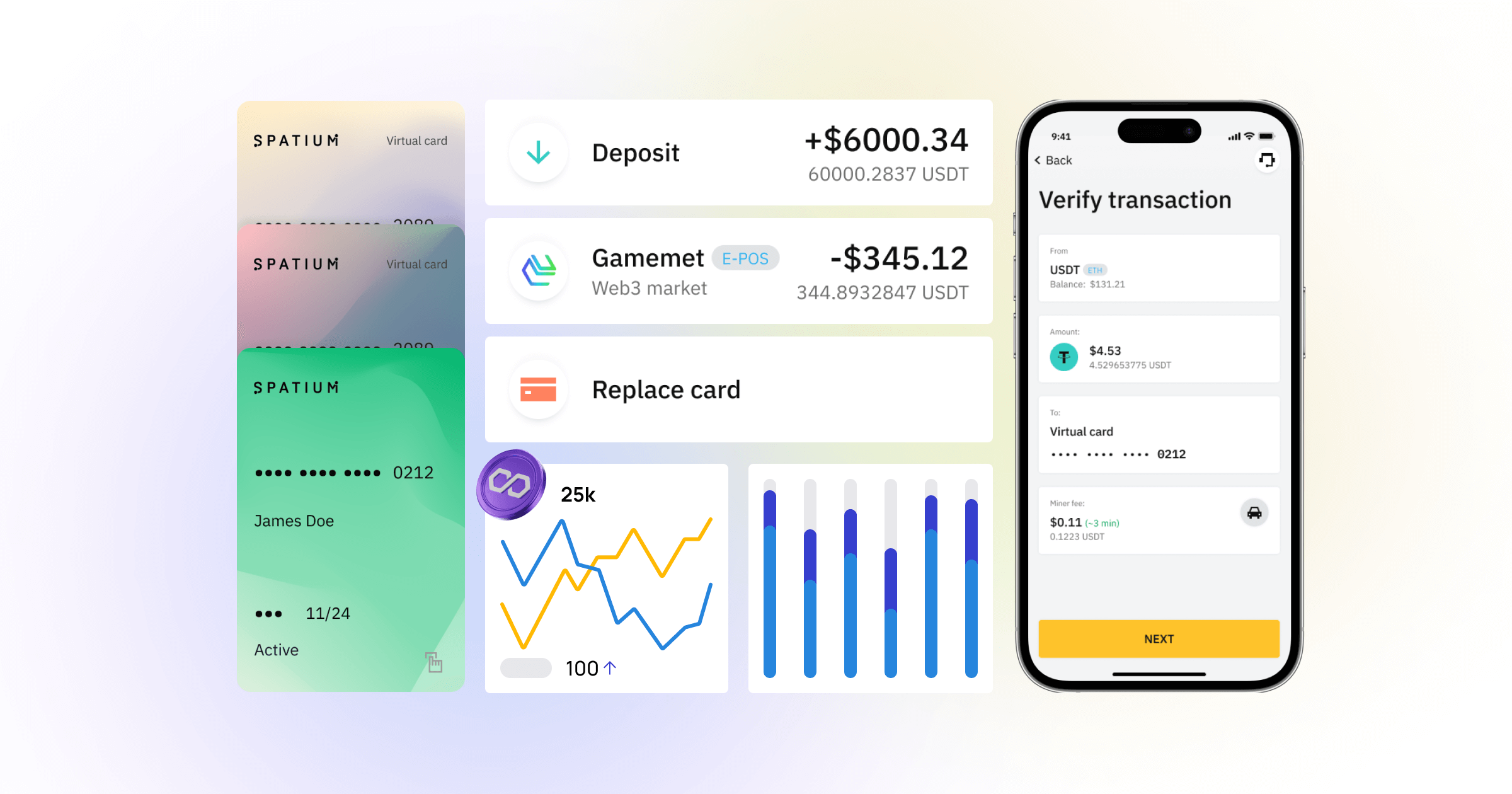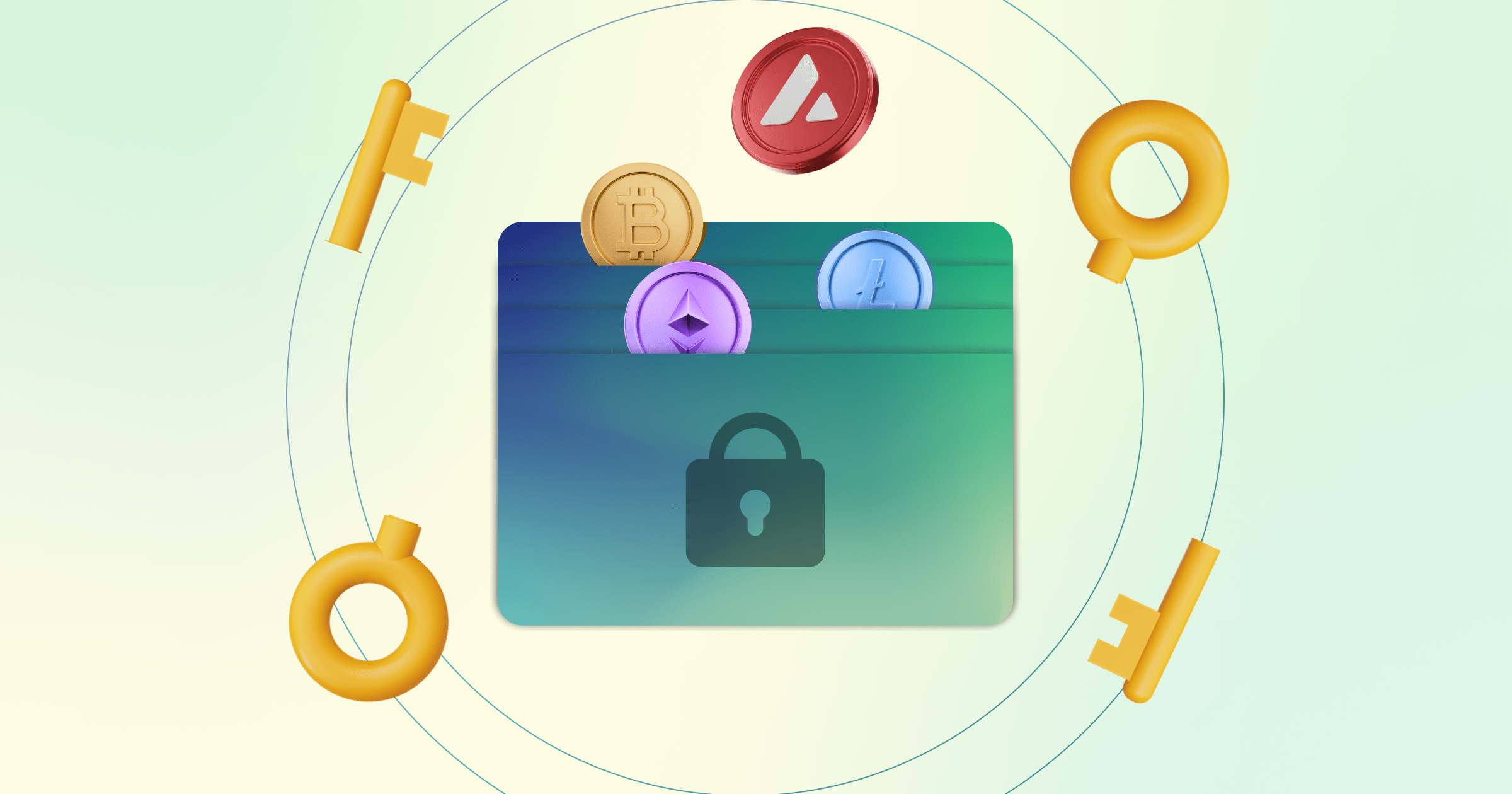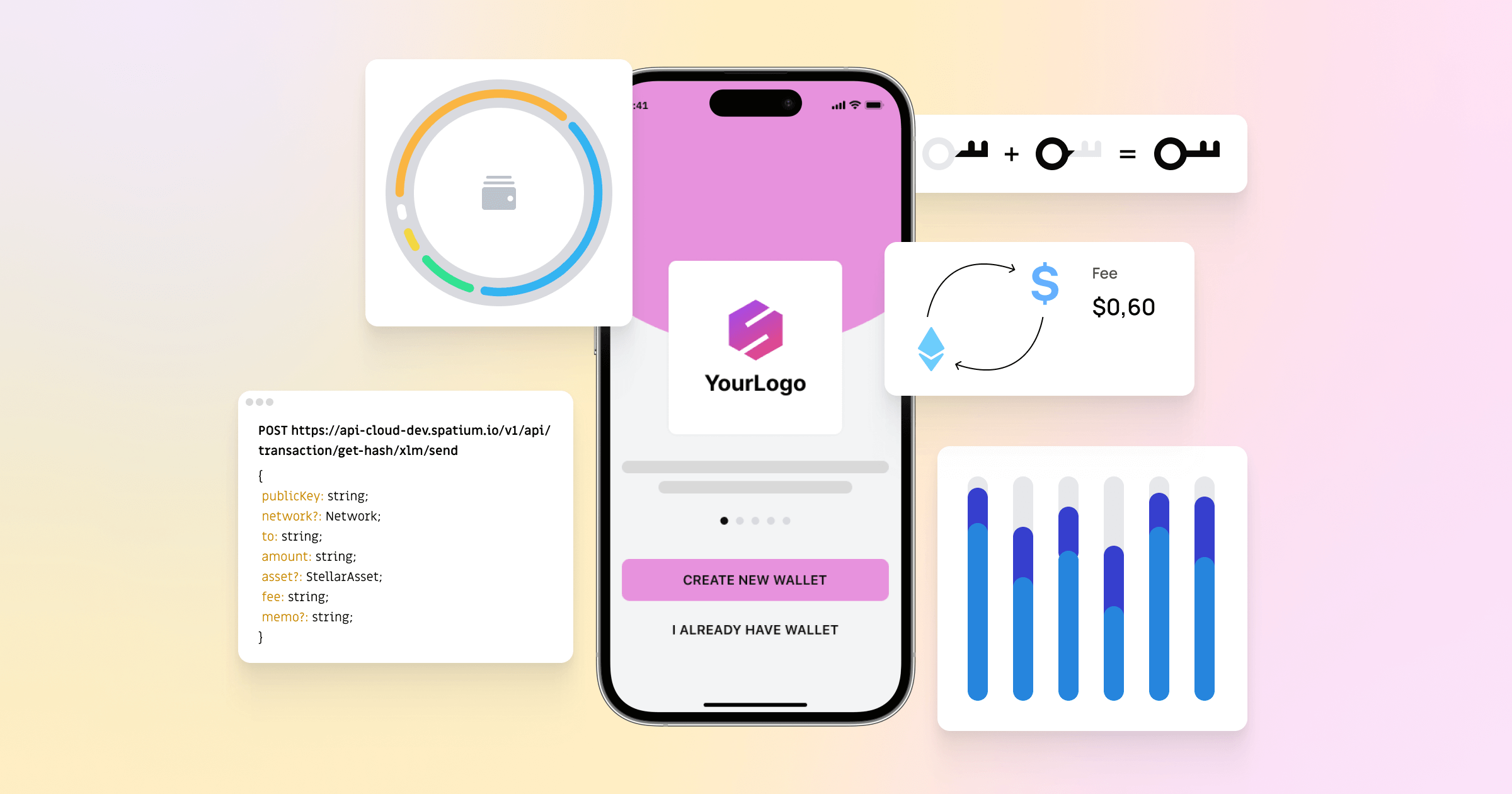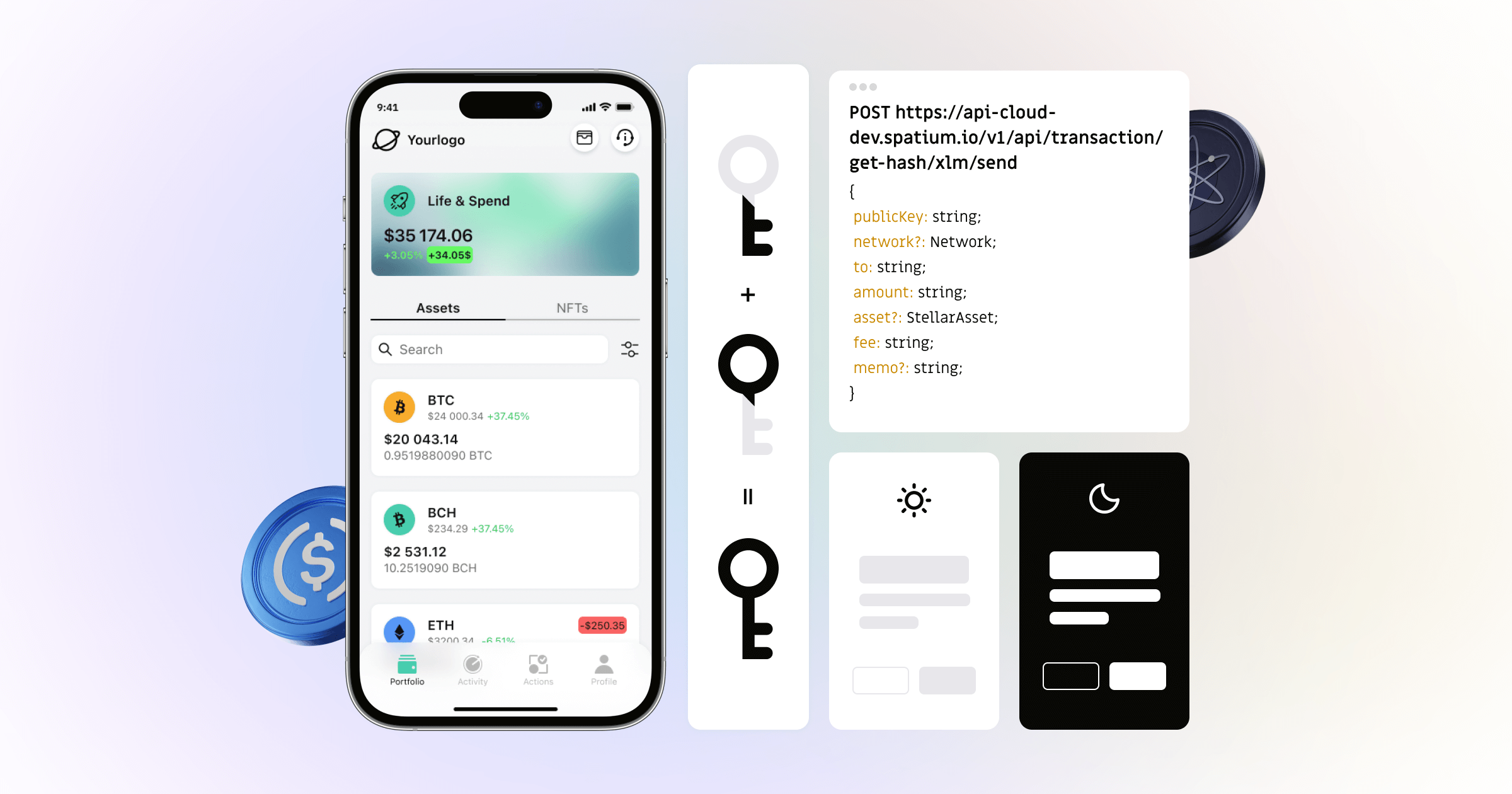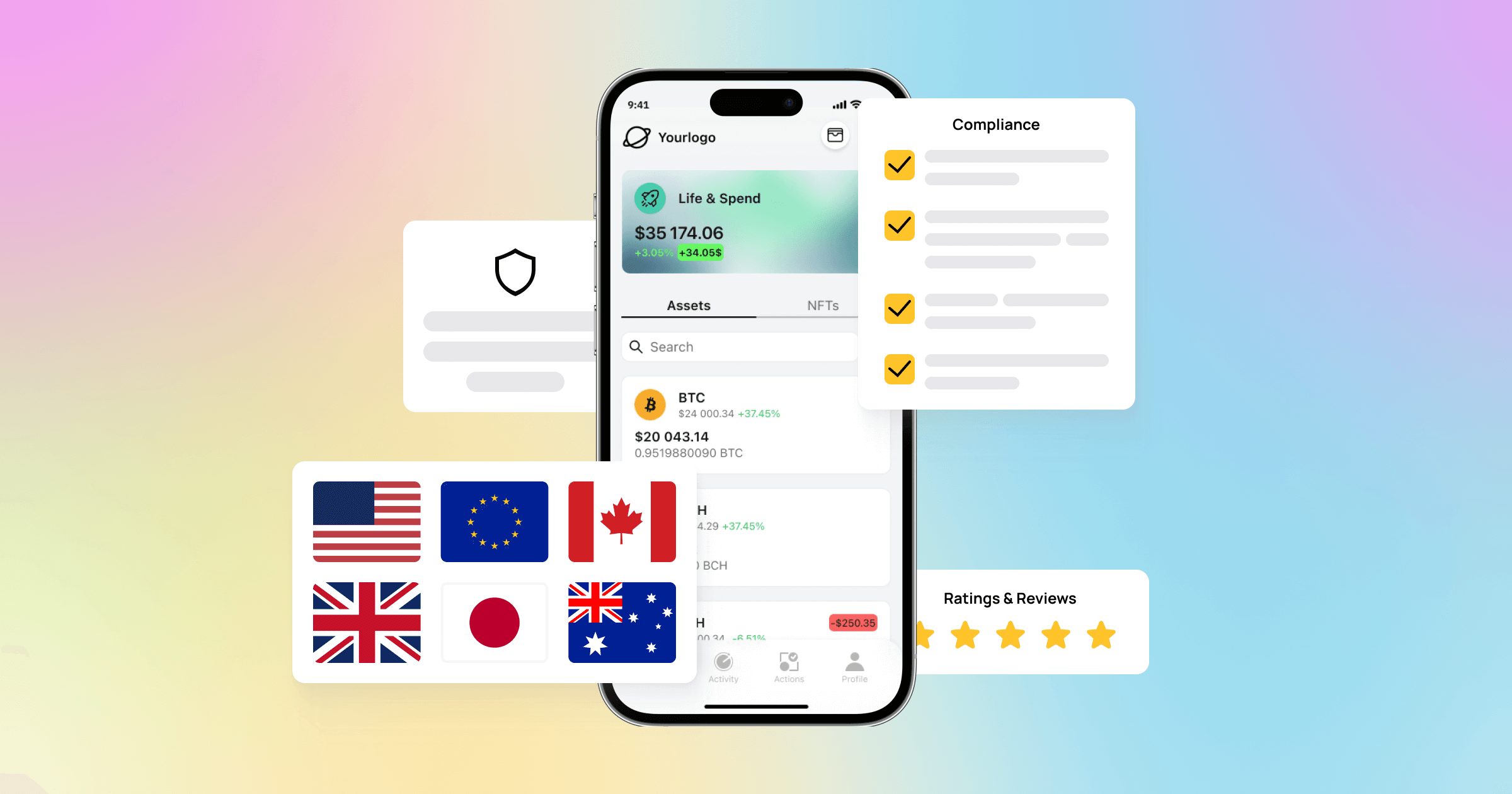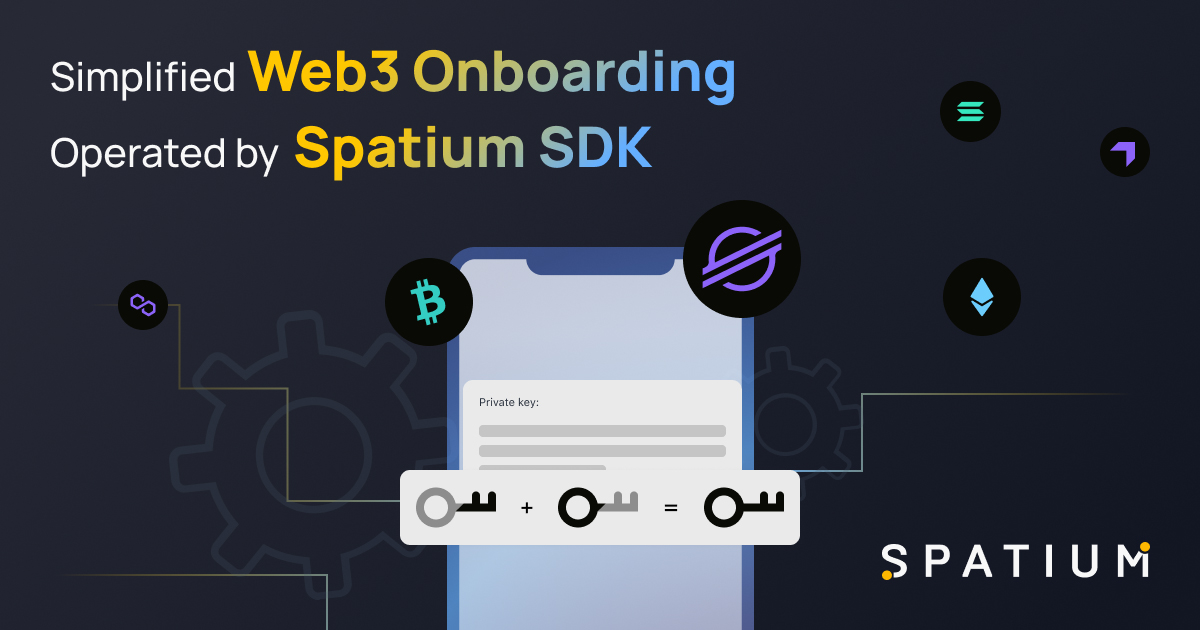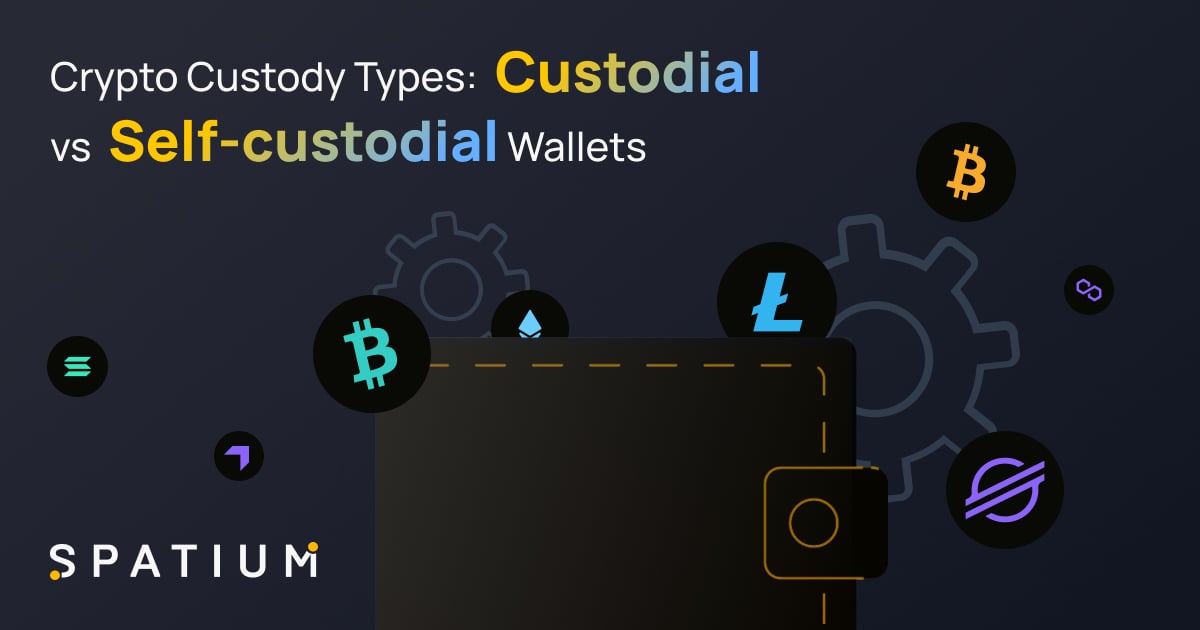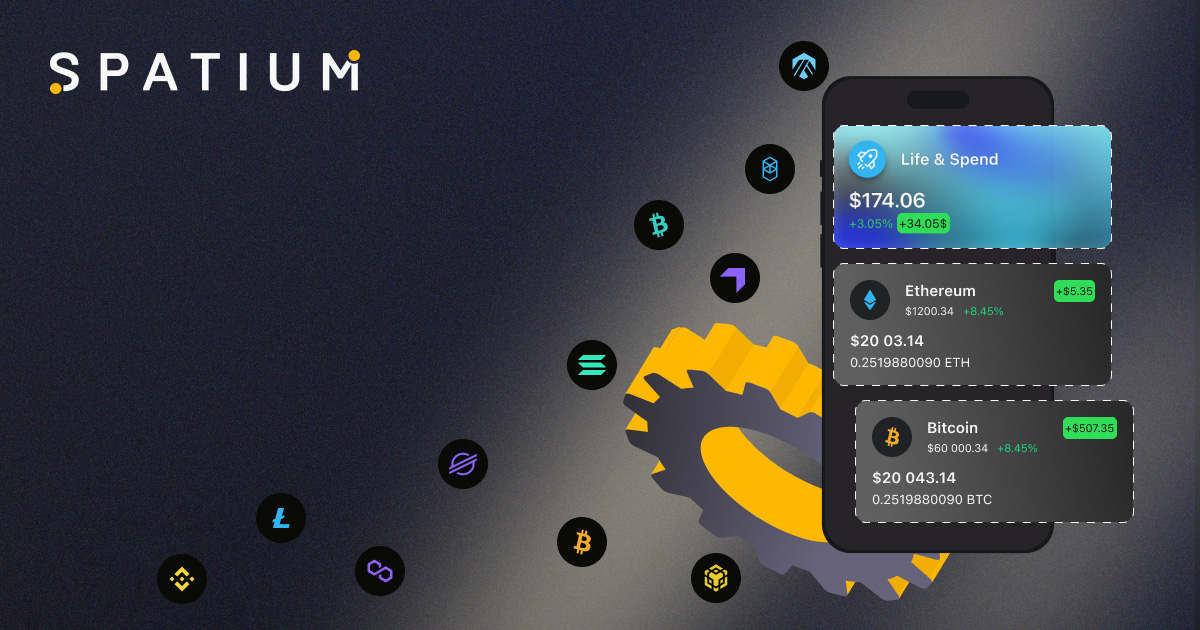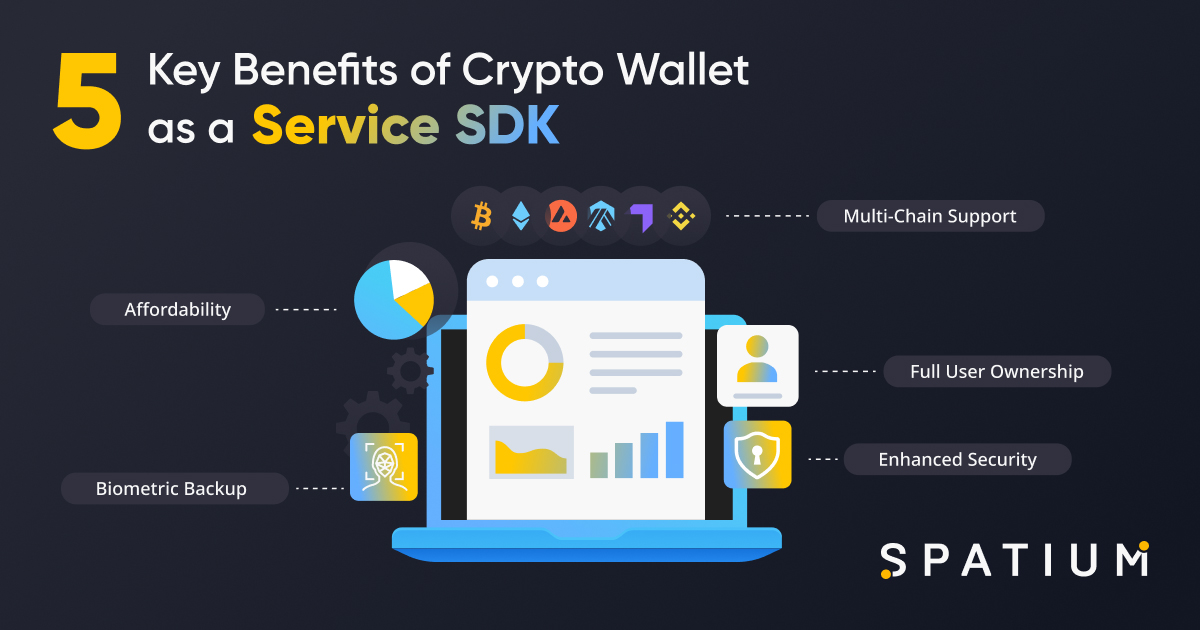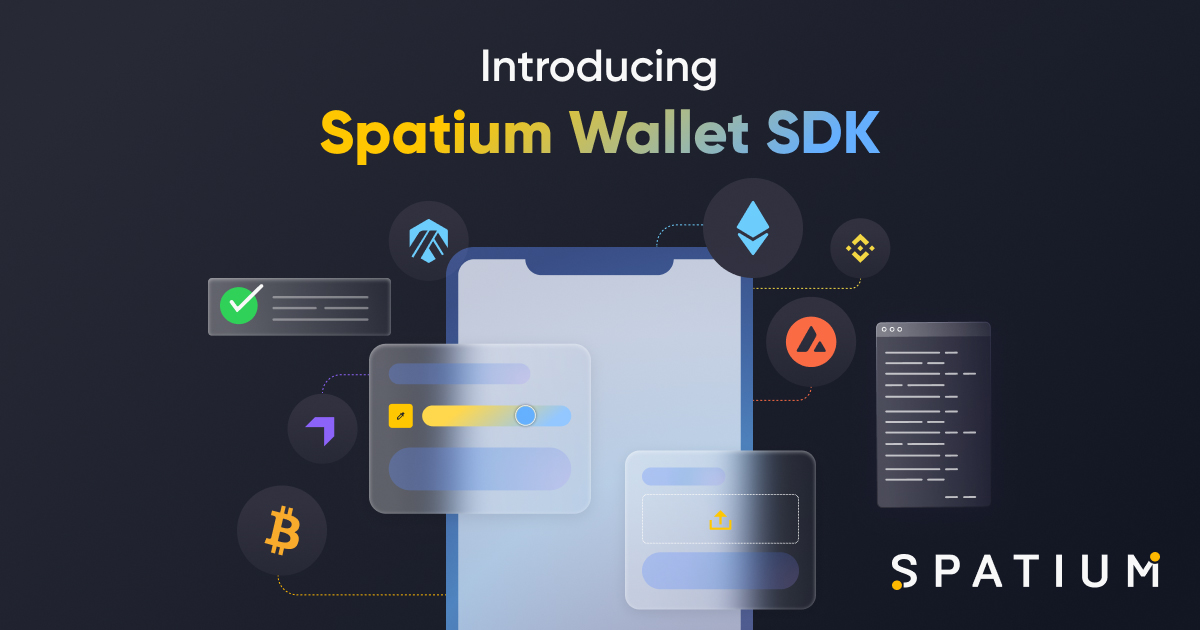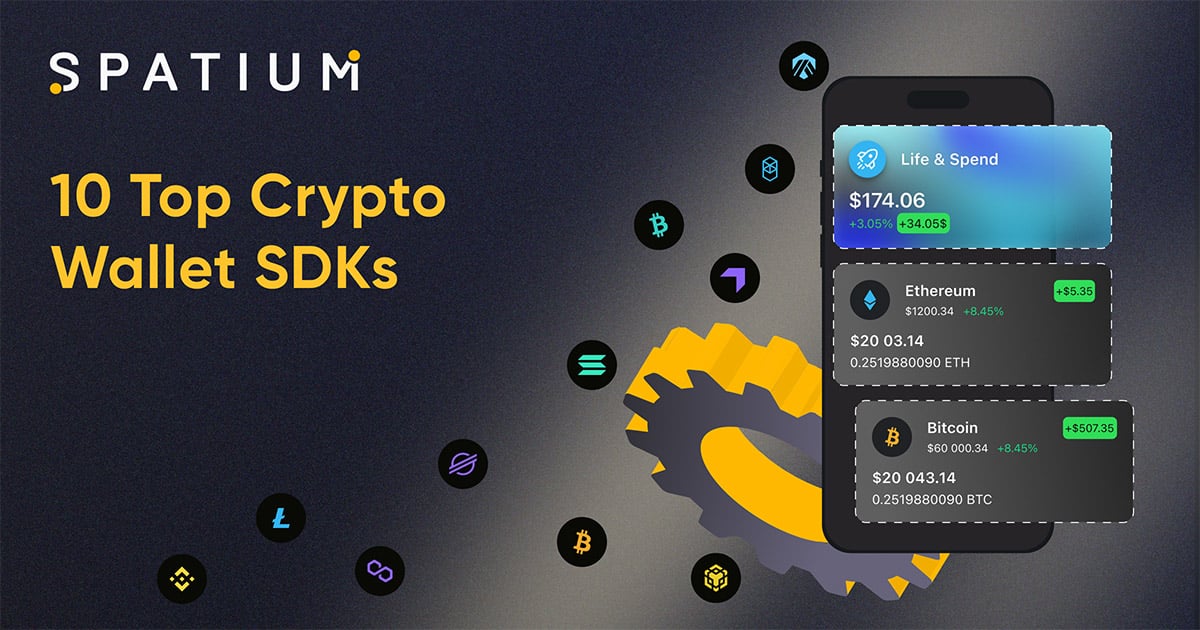Share this
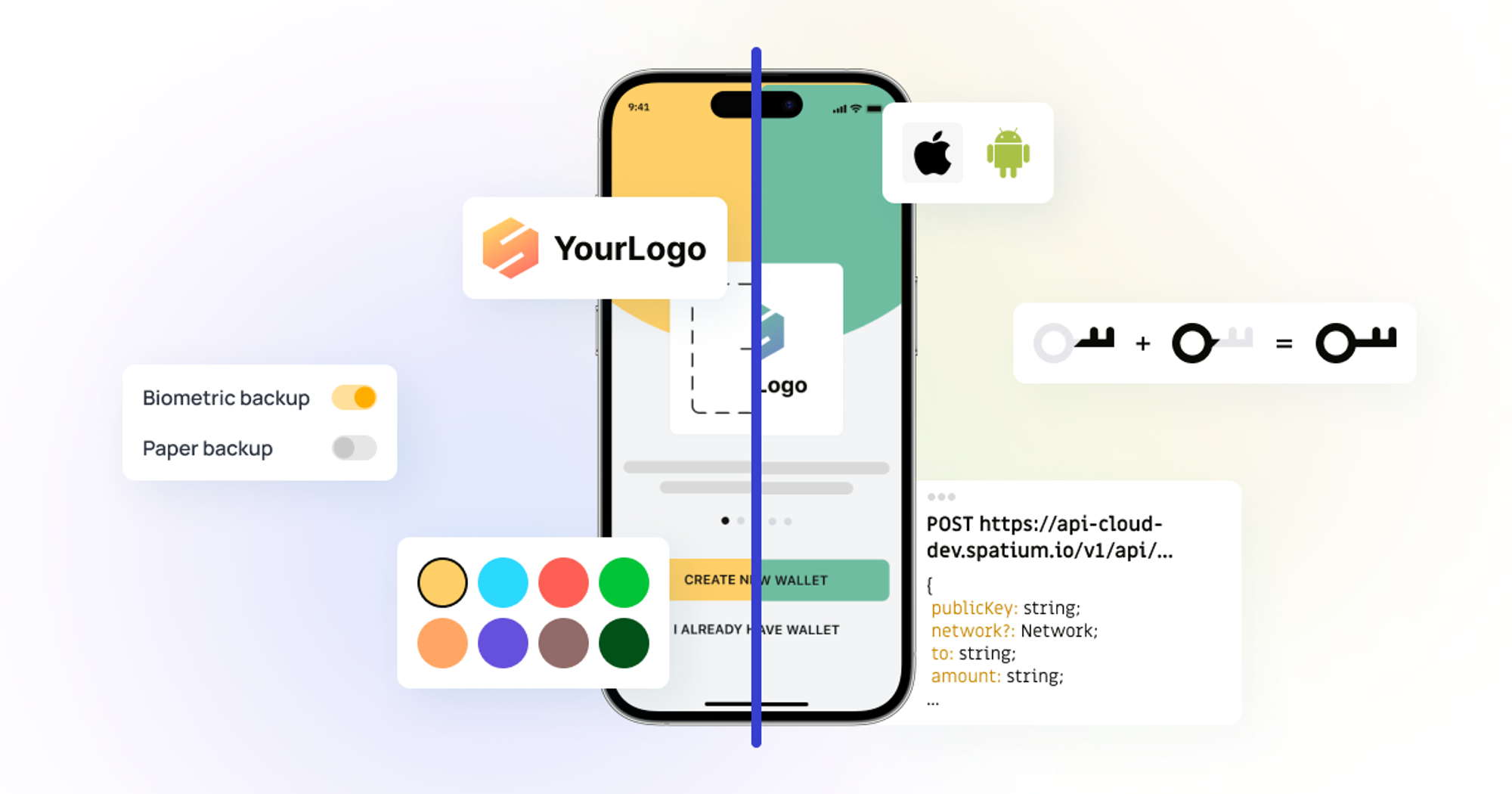
With more than 425 million crypto users worldwide, companies are scrambling to offer them the best service. However, creating a cryptocurrency wallet from the ground up requires extensive expertise in blockchain and cybersecurity, not to mention a lot of time and a large budget. For this reason, newcomers to the market often preferred to speed up the development by using white label solutions. In recent times the trend has buckled towards crypto wallet SDKs (software development kits), thanks to their greater flexibility.
In this article, we will show the difference between the approaches, highlight the most fitting scenarios for each, and explain how to make your own app with them.
When making a new cryptocurrency-related application, a company can either make everything from scratch or use premade solutions. The latter approach to crypto wallet development is cheaper and faster, but there are many ways to go about it. We will cover the two core ones: a white label solution and an SDK (software development kit).
White label crypto wallets
A “white label” solution is a pre-made application that only needs design adaptations to the new brand. It is usually sold “as is,” but might involve deeper customization for additional price. White label crypto wallets include all the core features like hot/cold storage, sending and receiving cryptocurrency, monitoring coin prices and exchange rates, etc.
Such solutions are a popular choice for companies looking to offer their customers a seamless branded cryptocurrency experience. On the one hand, they require far less resources to implement, as all the major aspects from crypto storage to cybersecurity are already covered. On the other, they look and feel professional, instilling customers with a sense of confidence.
Advantages:
- The fastest option. The entire point of white label crypto wallets is having all the most important features already included. You only need to change the UI to fit your company’s style, and you’re good to go.
- Minimal upkeep. The supplier usually takes responsibility for maintaining their white label application, allowing you to allocate your development resources elsewhere.
- Reduced initial outlay. Purchasing an annual license for a ready-made software is significantly less expensive than creating one from the ground up. This allows you to divert more funds towards marketing, customer service, and other areas. Furthermore, there's no certainty of business success. A smaller initial expenditure implies less financial risk.
Disadvantages:
- Limited Customization: While you can brand white label solutions, the level of customization is limited compared to a fully custom-built solution. This can impact your ability to differentiate your product.
- Lack of Uniqueness: Since many other companies may use the same white label solution, your product may not stand out in a crowded market.
- Dependency: You are dependent on the white label provider for updates, support, and maintenance, which can be a limitation if they don't meet your expectations.
- Costs Over Time: While white label solutions may reduce initial development costs, ongoing licensing fees or revenue sharing arrangements can add up over time.
- Scalability Limits: Some white label solutions may have scalability limits that can hinder your business growth.
- Limited Control: You have less control over the development roadmap, which means you may need to adapt to changes made by the provider.
- Security Concerns: Sharing a pre-built solution with other businesses can pose security risks if the provider doesn't maintain robust security measures.
- Less Innovation: Relying on pre-built solutions may limit your ability to innovate and offer unique features to your users.
White label solutions are the best fit for:
- Startups. Cash-strapped companies that are only beginning to enter the market could benefit from the cost savings that white label crypto wallets provide.
- SMEs. Small and medium businesses rarely have a development team that could create reliable and secure DeFi software. Buying a pre-made one would work fine for them.
Financial Institutions. Banks and financial institutions can use white label solutions to provide customers with digital banking, mobile wallets, or investment platforms without building them from scratch.
Crypto Wallet SDK
A crypto wallet SDK is a collection of programming tools, libraries, and APIs that developers can use to create and customize a cryptocurrency wallet. With it, the development process can be streamlined and completed much faster than when building similar functionality from the ground up. Overall, a crypto wallet SDK makes integrating a digital wallet more accessible and convenient for small businesses and established corporations alike.
Advantages:
- Rapid development. A software development kit helps programmers to create an application or its part much faster than making everything from the ground up.
- Expansive feature set. A crypto wallet SDK can include much more than just storing public and private keys. Multichain support, cold/warm storage, multi-party computation (MPC) and much more can go alongside the core options.
- Maximum flexibility. You can integrate all the available features or some of them, depending on what you need and can afford. Moreover, unlike white-label solutions, you can easily add more functionalities.
- Compatibility. A crypto wallet SDK provider will usually have versions available for every platform or most of them. This means you’ll be able to reach users wherever they are.
- Third-party integrations. SDKs often include tools to quickly establish important connections to other software. In the case of a crypto wallet, this might be connecting to exchanges, biometrics, analytics, etc.
Disadvantages:
- Some assembly required. Many crypto wallet SDKs only need a few minutes or a few days to be integrated. However, if you want to customize it, you will need your own development team for that.
- More responsibility. While the vendor will develop their product further and update it from time to time, ensuring that it runs smoothly with your app is on you.
- Vulnerability. A commonly used SDK can be reverse-engineered by malicious actors looking for security vulnerabilities. While this is difficult to execute, it still makes this approach more risky compared to making everything from scratch.
- Increased complexity. Even well-documented SDKs can make an application more difficult to maintain. This is especially pertinent to applications that use multiple SDKs for different purposes, as it adds the task of making sure all of them work together.
Which companies benefit the most from using an SDK?:
- Web2 companies. Businesses that have a development team that is only in the beginning of their Web3 journey, would benefit greatly from using a crypto wallet SDK, as it streamlines the transition into new technology stack..
- Enterprises. Companies that are less budget-restricted would enjoy the development velocity, flexibility, and scalability that comes from using an SDK.
- Third-party Integrators. Companies that specialize in integrating software solutions into existing systems can benefit from using SDKs provided by the software vendors. SDKs offer standardized interfaces, documentation, and support, making it easier for integrators to connect different systems and deliver seamless experiences to their clients.
- Budget-constrained companies. Businesses that don’t have to money to create and maintain crypto infrastructure from the ground up can use an SDK and focus on end-user experience.
How to create a wallet using a white label solution
There are several steps to the process.
Select a provider
Finding a white label crypto wallet development company is easy. Finding the right one for you is much harder. Here’s what you can do to find a vendor that will give you exactly what you need.
- Research their pricing vs. feature set. Paying $100K for a Prius is outrageous. The same price for a Bugatti Veyron is a bargain.
- Check their references. A reputable company will have customers that you can contact to ensure quality. In addition, check out reviews on independent platforms like Clutch.
- See how they handle communication. If the managers understand your needs and are working to help you, not just sell their product, this is a good sign.
Customize
White label solutions allow for some customization. So at this step you need to have a designer adapt the color scheme, logos, and other visual elements of the app to your brand. If you need extra features, the white label crypto wallet development company might do them for you as an additional service.
Test
The testing is necessary to give you peace of mind and ensure that the application works as intended. Usually it is done by the vendor. But you can bring a third-party company if you think it’s necessary.
Release
This covers more than just uploading the app to the store. You need to market the product, create documentation, and prepare your team for questions from the customers.
How to build a crypto wallet using a crypto wallet SDK?
Overall, the process is similar. However, the need to do some development adds a few more steps.
Select the right vendor
For a crypto wallet SDK provider, you can follow the same steps as for a white label solution vendor. However, pay special attention to the following aspects:
- Documentation. A well-documented product is easier to work with. And if your developers finish the job faster, you save money and get to market sooner.
- Integrations. Third-party functionalities like authentication, biometrics, signing, analytics, and much more are crucial for a modern crypto wallet. An SDK that includes connectivity to APIs that provide these features offers much more value.
Integration
Once you have the SDK, you’ll need to connect it to the rest of your app. This is often as simple as writing a few lines of code. However, checking whether everything works as intended could take some time. Especially if you are using several different SDKs in one app.
Testing
Working with an SDK requires at least some programming. So thoroughly testing the app is mandatory. Ideally, you should also conduct user acceptance testing. Letting a group of people from your target audience use the app and gathering their feedback could help you make important adjustments before you go live.
Deployment
Once your app is live, you need to be on the lookout for surprises. For example, you might get many more users than you anticipated.
Conclusion
A white label solution and a crypto wallet SDK both have their uses. The former is a better fit for a company that needs to go to market as soon as possible and start getting audience feedback. The latter is better suited for more tech-savvy businesses that want more control and flexibility in how they approach their product or lack the resources to create and maintain crypto infrastructure. And if you want to start choosing a crypto wallet SDK right away, feel free to request a free demo from Spatium.
Share this
Subscribe by email
Related posts











